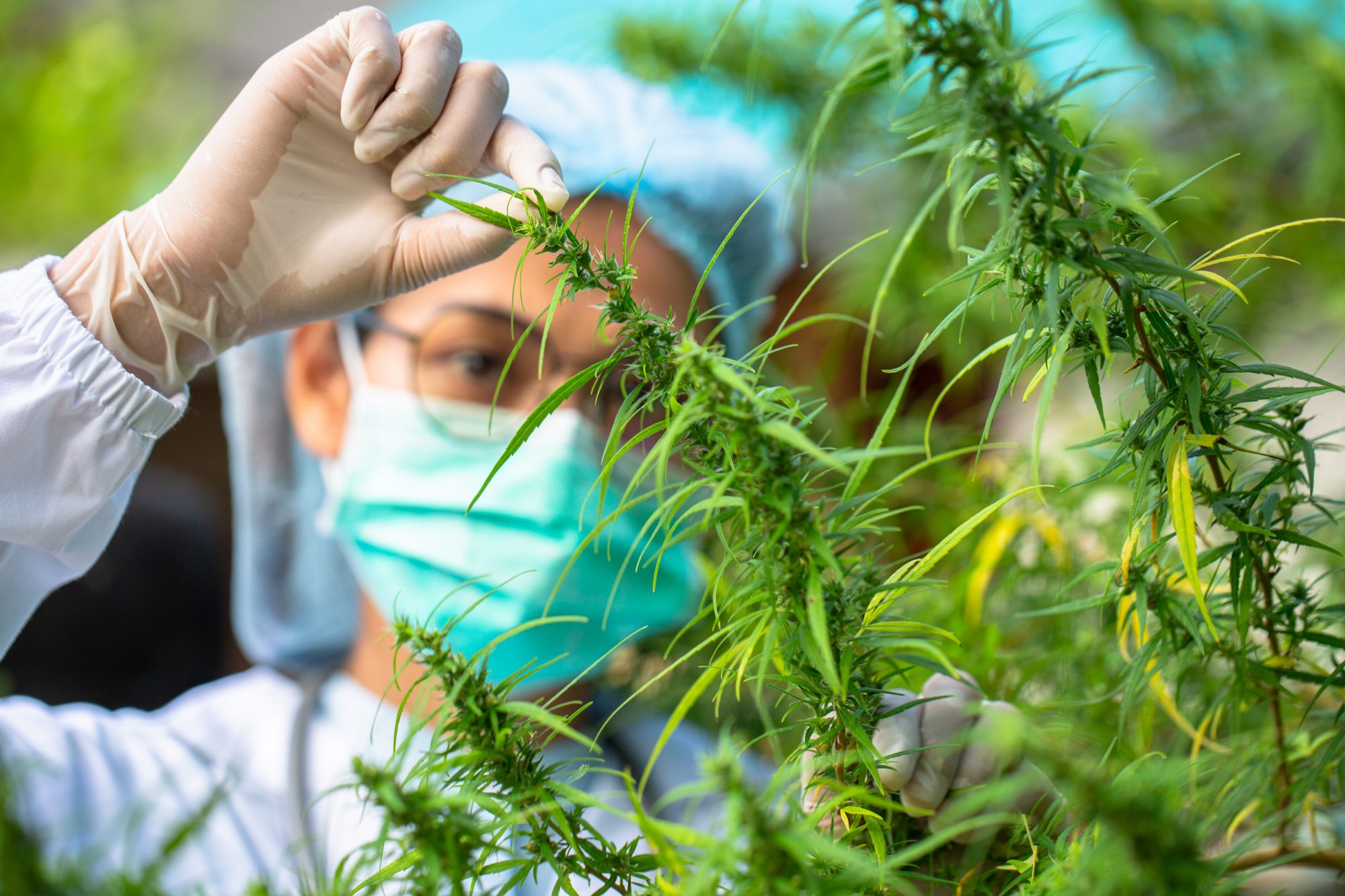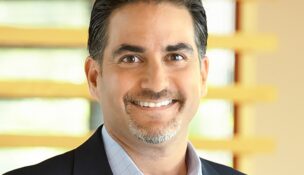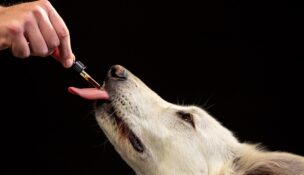Quality Control of CBD Processing and Testing
Megan Jander //June 9, 2020//
A quick scan of the labeling and packaging for pet foods and treats made from familiar, traditional ingredients will show that descriptions of those products often contain similar language and visuals.
Companies focusing on the high degree of purity in their foods and treats will indicate they are organic and/or natural, without artificial flavors, colors or preservatives. To emphasize production values (and exude patriotism at the same time), there will be a tiny American flag, a few prominently placed words or both to indicate that the contents were made in the United States. And when touting the products’ physical benefits (such as supporting digestion, joints or the immune system), the wording will be unequivocal, sometimes in a font size that stands out almost as much as the brand’s logo.
Those very same claims and characteristics are also on pet products where the featured ingredient is hemp-derived cannabidiol (CBD). However, due to the relative newness of the CBD product suite and the absence of broad CBD regulation in America, pet owners and retailers might still be concerned about overall quality, safety and integrity of such goods, even with the presence of the aforementioned words and symbols on the bag or box.
It’s important to remember that the passage of the Agriculture Improvement Act of 2018 (aka the 2018 Farm Bill) removed CBD-rich industrial hemp from the Controlled Substances Act. Therefore, by law, hemp may not exceed 0.3 percent tetrahydrocannabinol (THC), the psychoactive element found in substantial amounts in the marijuana plant. CBD is not intoxicating, and studies and anecdotal evidence have shown that its use has resulted in relief for pets and people experiencing such issues as stress, anxiety and pain.
Aside from the oral solution Epidiolex, a prescription drug for treating two rare and severe forms of epilepsy in people, the U.S. Food and Drug Administration has not approved any other CBD products, according to its website. Furthermore, when it comes to processing and testing standards for the CBD used in their pet products, the manufacturers themselves are taking on those responsibilities. Some of those brands have plenty to say about the subject, and a quick scan of choice brands’ websites shows they are forthcoming about what happens to the hemp and extracted CBD throughout their supply chains.
Before and After the Harvest
Hemp is a crop, and just like with growing apples, corn and other staples, there is a calendar to follow and environmental challenges to address in order for a harvest to turn out as desired.
Organic hemp farming—one that does not use chemicals to combat pests and provide nutrition to the plant—is common in the CBD pet product sector, and so is growing the plant in Colorado. Pet Releaf, which has a pet product line that includes hemp oils for dogs and cats, grows hemp organically in the Centennial State, as does Mary’s Tails, the pet product division of Mary’s Nutritionals. The same goes for Honest Paws, makers of chews and oils for cats and dogs; Holistic Hound, known for its bites, chews and oils for felines and canines; and Earth Buddy, producers of Hemp Hearts for dogs and Hemp Extracts for dogs, cats and small animals.
In a 2019 interview for Pet Age, Pet Releaf co-founder Alina Smith compared hemp to a vacuum in that it “sucks up and accumulates anything in the soil it lives in and anything sprayed on it,” so even if grown organically, “plants can and will still absorb any past chemicals in their fields.”
“Our testing is consistent throughout the entire process—in the hemp field, after harvest and at dozens of points through extraction and production,” she said. “I would pretty much guarantee that we test our final products far more than anyone trying to sell CBD products for pets.”
Holistic Hound co-founder Heidi Hill also is wary of contaminants finding their way into an organic-growing area, and her company has taken action to combat the problem.
“The biggest quality-control challenge is pesticide overspray that floats in the air from other neighboring farms that can land and soak into the soil,” said Hill, noting that Holistic Hound also grows hemp in Oregon. “To mitigate this risk, we grow in multiple locations, grow indoors and test regularly.”
Josh Awad, the chief operating officer at Honest Paws, says his company’s growing season is typically May to October on a USDA-certified organic farm in Colorado. Its hemp is grown adhering to an approach known as regenerative organic agriculture, a key aspect of which is soil health.
“This method of farming often costs more but is significantly more beneficial for the environment and creates a higher quality finished product,” he said.
Earth Buddy grows its hemp on a four-acre organic farm, says director of sales and co-founder Sean Zyer, adding that nothing produced at the Colorado farm has ever been nonorganic.
Zyer says Earth Buddy treats its hemp like a fine wine.
“You can grow an amazing grape, you can grow it organically with good soil and a good water source, but the real work doesn’t start until you actually harvest that product,” he explained. “You can grow the greatest plant in the world, but if you don’t harvest, dry and cure it properly, a lot of times you’re going to have to have these very extreme interventions, like chemical pesticides, fungicides and herbicides. And if you don’t curate that product and harvest it properly, you’re going to have to have more interventions on the backside, which usually involves chemical extraction.”
Prior to harvest, any individual or legal entity legally allowed to grow industrial hemp in Colorado is subject to routine inspection and sampling by the state’s Department of Agriculture to ensure the THC level does not surpass the legal limit of 0.3 percent, per the Industrial Hemp Regulatory Program Act.
In order to “preserve the medicinal value of that plant as much as possible,” Earth Buddy harvests its hemp by hand, says Zyer.
“We are throwing them into a box truck, and then we are hang-drying them in a climate-controlled facility for about two to three weeks,” he said. “They have to be completely dried so then we can have our crew come in and basically cut off the bud or flower, and then a little bit of the leaves [which also] have beneficial compounds in them.”
At the Lab
There are multiple methods used to remove CBD oil from hemp. Each extraction technique has distinct qualities and benefits, and the same can be said about the CBD product classifications (full spectrum, broad spectrum and CBD isolate) that reflect what other specific compounds accompany the CBD.
Finding out what is in hemp-derived oil is a critical step often put into the skilled hands of scientists at a laboratory that specializes in testing products made from hemp.
Using an accredited third-party lab is important, says Zyer, “because everybody and their mother is growing, selling and producing CBD. Anybody with a biochemistry bachelor’s degree can start a lab and say, ‘I’ll test your product. What do you want to see in it?’ The accreditation of the lab is important because we’ve seen lab tests with some wild values of other compounds in the product, and it doesn’t make sense to what the product actually is.”
Earth Buddy, Mary’s Tails and Holistic Hound are among the CBD pet product companies that use Denver, Colorado-based Botanacor, which opened in 2014. The American Association for Laboratory Accreditation (A2LA), an internationally recognized, independent nonprofit accreditation body, in 2018 granted ISO/IEC 17025 accreditation to Botanacor. That accreditation covers a variety of analytical activities, among them testing hemp-derived edibles.
“Appropriate testing is critical to demonstrate that these products do not contain harmful levels of contaminants or adulterants and are safe for public consumption,” the A2LA says on its website.
Botanacor offers a range of a la carte services, with cannabinoid potency, microbial contamination and heavy metals testing among the most popular, says Scott Hansen, the laboratory’s vice president of quality and regulatory affairs.
“Part of the attraction to hemp and cannabis at large is there are 1,000 compounds,” said Hansen. “And with 1,000 things in it, I need to measure the things that you want to be there, the things that you don’t want to be there and the things you certainly don’t want to get into pets or people. Some of that specialization about the product matrixes are really important.”
Botanacor runs tests not only on CBD oil but also on finished goods, best done in batches for “a better picture as a manufacturer,” says Hansen, and “to confirm that the formulation is true and that the product is labeled as expected.”
It’s key to the lab’s mission to, as Hansen puts it, “be the purveyors of truth in a lot of these exchanges.”
“Making these products and making them well to be able to reflect what you put in there, it’s not simple a process,” Hansen added. “Making a general dog chew, you’re not measuring the milligrams of an active ingredient typically. That’s the challenging part, which is the reason why you come to an analytical laboratory to really get data you can trust.”
Trust and transparency factor into why companies take it a step further by posting the third-party lab test results—commonly known as a certificate of analysis—on their websites. These certificates are available as downloadable PDFs and are easy for customers and retailers to find. For example, Holistic Hound has a dropdown on its homepage labeled Testing, while Earth Buddy houses its results under the Education heading. (And in the News section of its website, Botanacor has an April 2019 post named “Understanding Your Lab Report” that breaks down the information contained in the lab’s certificates of analysis.)
Animal Nutritional Products, makers of the Phytomaxx Plus CBD line for cats and dogs, posts its results from ProVerde Laboratories in an area named, appropriately enough, 3rd Party Analysis. Robert Kovler, ANP’s vice president, may have put it best when he told Pet Age in 2019, “The third-party analysis never lies. If a CBD company gives you excuses of why they don’t have one, proceed with caution.”



















